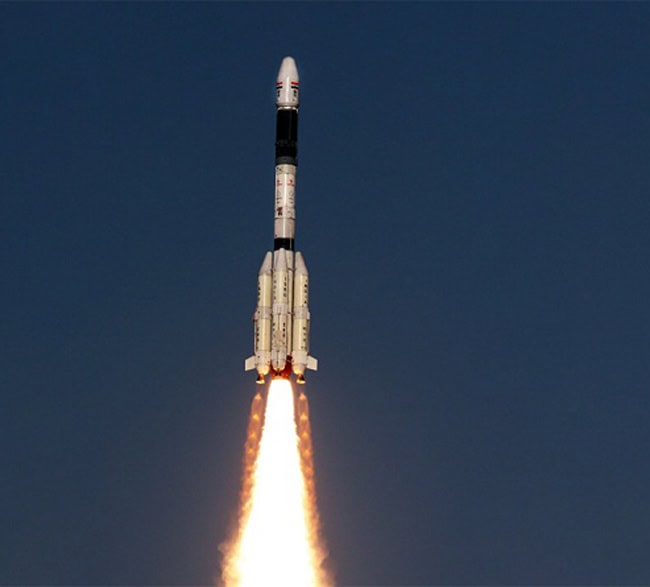Sriharikota: The Indian Space Research Organisation (ISRO) is not facing any funds crunch for its ongoing activities, the agency Chairman said on Thursday.
ISRO Chairman K.Sivan made the remark while was speaking to reporters here after the successful launch of the navigation satellite IRNSS-1I, a part of the NavIC (Navigation with Indian Constellation) series, earlier in the day.
The 1,425 kg satellite was carried into space by Polar Satellite Launch Vehicle (PSLV) rocket’s ‘XL’ variant.
Responding to a question on the reported funds crunch, Sivan said: “There is no funds crunch. We will ensure the ongoing activities are not affected.”
The total allocation for the Department of Space for the next fiscal in the union budget for 2018-19 is Rs 10,783 crore (including Rs 8,936.97 crore for various space related projects) – up from Rs 9,155.52 crore allocated for the 2017-18 net of recoveries and receipts.
To a question on ISRO getting its basic needs right — heavy lift rockets, heavier or higher capacity satellites instead of inter-planetary missions — Sivan said work had already started to increase the carrying capacty of the Geosynchronous Satellite Launch Vehicle (GSLV) Mk-III to 6 tonnes.
He said the space agency will be making high throughput satellites that weigh less but give the output of a heavier satellite.
On the concerns raised by the Comptroller and Auditor General (CAG) on the navigation satellite system, Sivan said with the launch of IRNSS-1I, the system was now put in place and the applications would have to be rolled out.
He said the industry has to make the necessary products so as to use the navigation satellite system.
“We have developed our own atomic clocks which would be used in the upcoming navigation satellites,” the ISRO chair said.
On the status of the recently launched GSAT-6A satellite that lost communication link soon after it was put into orbit, Sivan said the space agency was able to locate the satellite and track its movements.
Asked about space missions for 2018, Sivan said the space agency would launch 5.7 tonne GSAT-11, a high throughput satellite using Ariane rocket.
He said the GSAT 29 would be launched using a GSLV Mk III rocket.
There are also launch missions for remote sensing satellites, NavIC satellite and the Chandrayaan-2/moon mission.
On the status of resuable launch vehicle project, S.Somanath, Director, Vikram Sarabhai Space Centre (VSSC) said the next phase will be to test ground landing.
IANS

